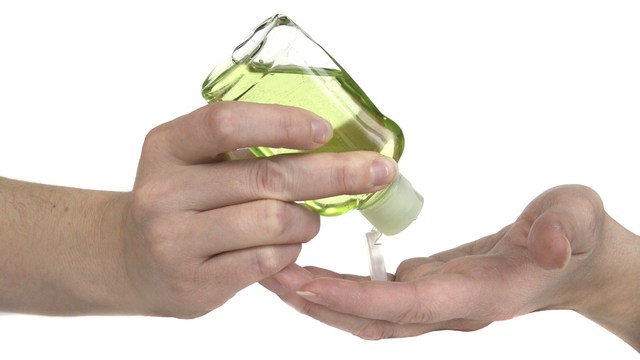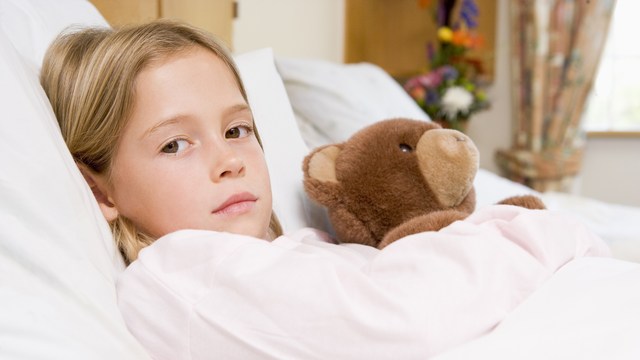Ever since I went out-of-town for the weekend, I've had awful stomach pain, intestinal cramping and diarrhea. I'm able to sleep now (was awake in the bathroom most of the previous nights), and do not have as much pain/cramping. However, I'm still not able to eat much more than some saltine crackers, bread or a banana for the entire day. I'm feeling weak and sleepy, but otherwise, no other symptoms.
When should I go to the doctor? I don't want to, since I'm feeling better and my symptoms are improving. However, I'd like to know what I have and how much longer this will last. Should I be doing anything else? When will I be able to eat actual meals again?
All user-generated information on this site is the opinion of its author only and is not a substitute for medical advice or treatment for any medical conditions. Members and guests are responsible for their own posts and the potential consequences of those posts detailed in our Terms of Service.





Add a Comment6 Comments
I have school tomorrow and I'm feeling nauseated and my stomach hurts. I haven't gone to the restroom yet. If I have the stomach bug then wounldnt I already be throwing up? What do I do?
August 22, 2017 - 7:55pmThis Comment
We posted the signs and symptoms of diarrhea above, along with a link to some information about food poisoning. Have you consulted your doctor?
March 23, 2009 - 5:50pmThis Comment
I went to eat out a couple of days ago and have been sick ever since. My two children has diarrhea for 3days but are now ok.Unfortunately I have been sick for 3 days with no improvement.I have stomach aches,nausea,body aches
March 23, 2009 - 4:37pmand feel very sleepy one thing I dont have is diarrhea.Is it food poisoning?
This Comment
Free2beme, in my own personal experience, the time or two that I have had food poisoning, nausea and vomiting have accompanied it. It is as if your body cannot get the toxic substance out quickly enough (and diarhhea certainly helps it do that.)
You didn't mention vomiting, so I'm wondering if that was part of it.
I have also noticed a serious aversion -- lasting for years -- to whatever made me sick, even if it was a favorite food before. The two times I've gotten food poisoning it was from pasta salad and fried chicken, and I've never felt the same way about either food since.
This is not to say that you didn't have food poisoning; it's also possible you had a milder case then I did in the above two instances. But I just wanted to make the point that in my experience, once I ate something that wasn't right, it seemed like 3 or 4 hours later my entire body's system was doing everything it could to rid itself of that food, and that then mentally and physically afterward I'd lost all taste for that food. So if any of those symptoms sound familiar, that might be part of what helps you figure out what made you sick.
In any case, so glad you're on the mend!
October 24, 2008 - 8:09amThis Comment
I'm so sorry you got ill after your trip, and glad to hear that you're feeling better. As Alison suggested, a bland, non-fatty and non-fiber diet for a few days will help your system normalize. Electrolyte fortified fluids, such as Pedialyte, are also often prescribed to replace essential minerals lost with diarrhea.
It is often difficult to tell whether you're suffering from food poisoning or diarrhea - possibly induced by factors other than food. Here are the common symptoms of food poisoning:
Signs and symptoms of diarrhea:
Also see:
Food Poisoning, Dr. Greene
Multiple diarrhea symptom combination checker
October 23, 2008 - 6:43pmThis Comment
Sounds like you have acute diarrhea, which can last for several days. (This is compared to chronic diarrhea, which can last up to four weeks!).
According to the Mayo Clinic, you should see your doctor if you have diarrhea lasting more than three days. Without seeing your doctor, it is impossible to know what the culprit is: could be a virus (stomach "flu") or parasite or bacterial infection (perhaps from your road trip).
Since it sounds like you are feeling better and your symptoms are improving: hang in there! Here are some home remedy suggestions:
- Drink plenty of clear liquids, including water, broths and juices every day. But, avoid apple and pear juices until you feel better because they can make your diarrhea worse. Avoid caffeine and alcohol. Eating gelatin may also help.
- Add semisolid and low-fiber foods gradually as your bowel movements return to normal. Try soda crackers, toast, eggs, rice or chicken.
- Avoid certain foods such as dairy products, fatty foods, high-fiber foods or highly seasoned foods for a few days.
Also, not sure if this still holds true or not, but the BRAT diet is supposed to help ease symptoms, and stands for: bananas, rice, applesauce and toast (low-fiber).
October 23, 2008 - 1:04pmThis Comment